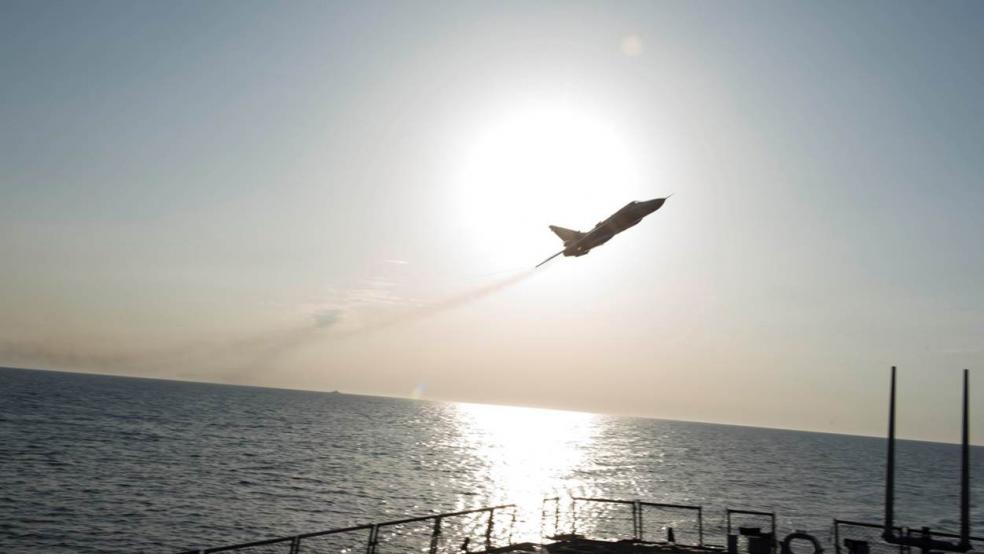After Russian attack aircraft repeatedly buzzed a Navy warship earlier this week, the U.S. and Russia have responded with what amounts to diplomatic shrugs.
A pair of Su-24 jets (nicknamed “Fencer” by NATO) were filmed flying over the destroyer U.S.S. Donald Cook in the Baltic Sea, about 70 miles from Russia's Kaliningrad province, on Monday and Tuesday. U.S. European Command put the footage online and it soon went viral, leaving many observers to wonder what would happen next between the two former Cold War enemies.
Turns out, probably nothing.
"To be honest, we don't understand such a painful reaction from our American colleagues,” Russian Ministry of Defense spokesman Maj. Gen. Igor Konashenkov told the state-controlled TASS news agency.
Related: The 10 Most Expensive Weapons in the Pentagon’s Arsenal
"Spotting the ship within the visibility zone, the Russian pilots turned their aircraft away from the vessel fully observing the safety measures," he added.
Just as the U.S. ship has freedom of navigation in international waters, the Russian jets have freedom of navigation in international skies, Konashenkov said.
“The principle of freedom of navigation for the U.S. destroyer, which is staying in close proximity to a Russian naval base in the Baltic Sea, does at all not cancel the principle of freedom of flight for Russian aircraft," the spokesman said.
In addition to the pair of Su-24s, a Russian Ka-27 helicopter made seven passes above the destroyer and was believed to be photographing the ship.
As for Washington’s response?
“The United States has raised our concerns with the Russians,” White House press secretary Josh Earnest said Thursday during a press briefing.
Related: Putin Revives a Cold War Dance as Russian Bombers Buzz US Carrier
Earnest said the hair-raising incident was “inconsistent with the professional norms” of militaries operating on the sea and airspace as well as a treaty Washington and Moscow struck in 1972 that governs such instances.
“We’ll seek to resolve our differences through well-established military channels,” he noted, adding that the U.S. military attaché in Moscow had already reached out to the Kremlin.





